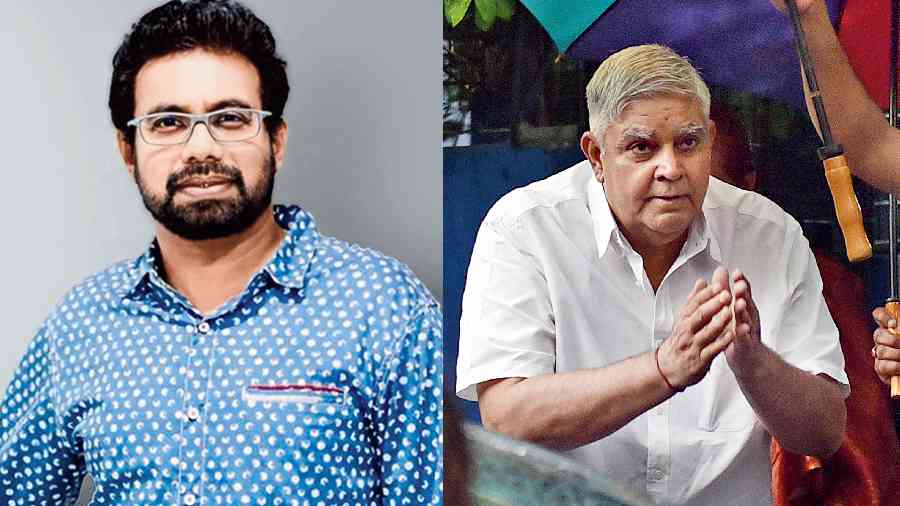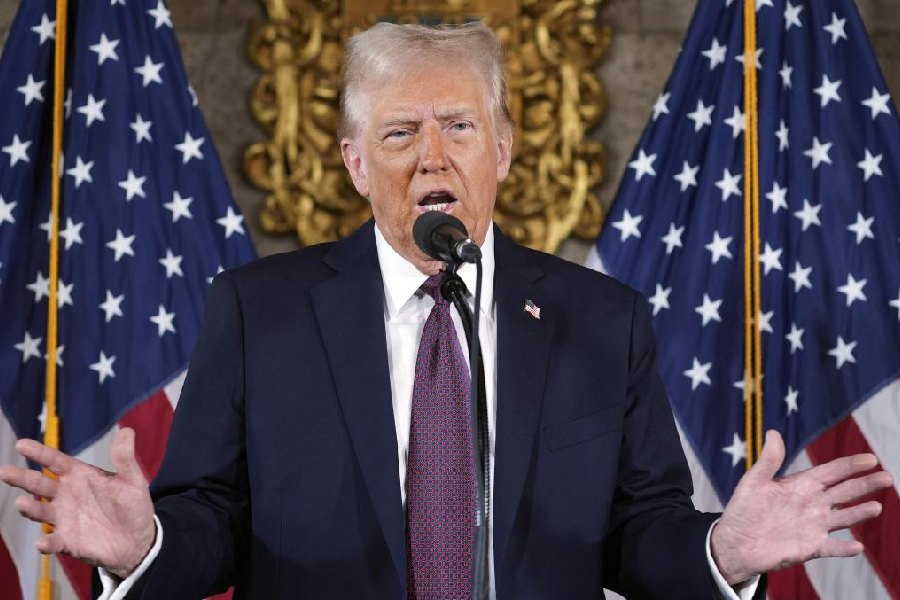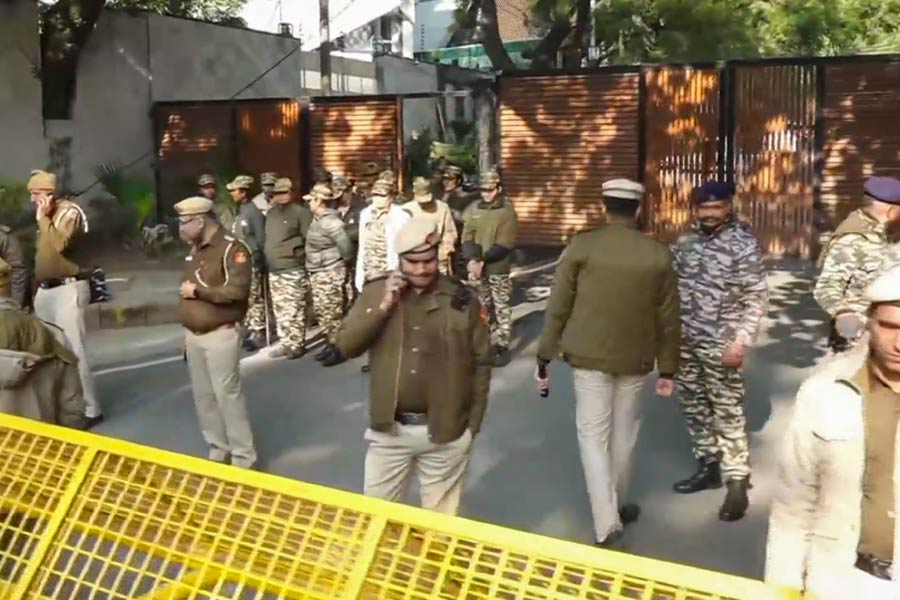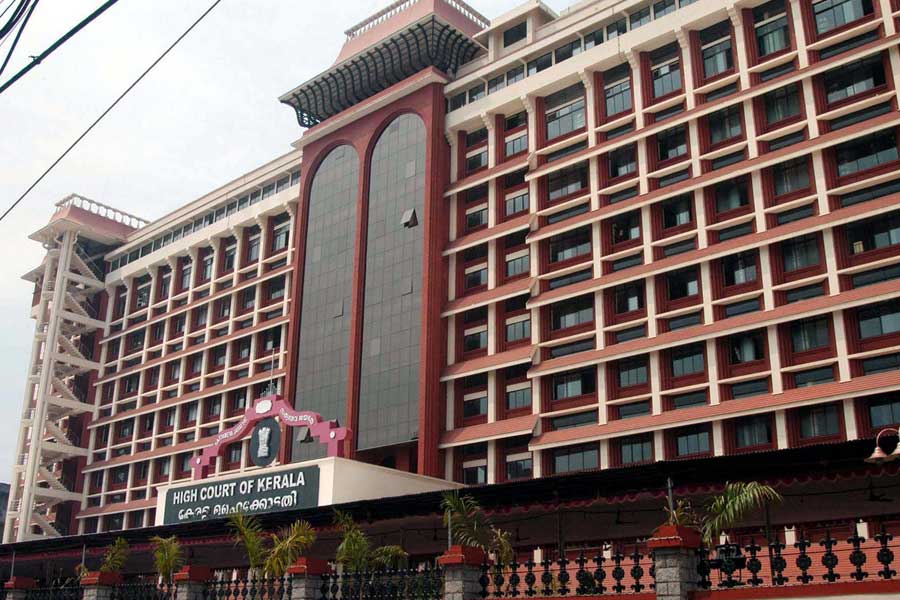Rajya Sabha Chairperson Jagdeep Dhankhar summoned CPM member John Brittas and sought an explanation for a newspaper article he had written chiding Union home minister Amit Shah for “belittling” Kerala, leaving the Leftist politician “shocked and baffled”.
Brittas told The Telegraph that the Rajya Sabha secretariat first sent him a notice asking him to meet Dhankhar, who is also Vice-President of India. After he met Dhankhar last week and “briefed” him orally about the matter, Brittas said, he was told he had to give a written explanation.
Brittas said the entire sequence of events was “something unheard of in the history of India”.
Rajya Sabha sources refused to confirm or deny that such a meeting had taken place. “Officials are not called in for all meetings,” a source said.
Dhankhar is believed to have acted on the basis of a complaint from Kerala BJP general secretary P. Sudheer that accused Brittas of sedition.
“I was not even (claiming) a privilege as a member of Parliament. It was like a citizen (that I wrote the article),” Brittas told this newspaper on Saturday.
“I am aghast that the ruling party files a complaint to the Rajya Sabha Chairman and the Chairman calls me formally for a meeting to discuss the complaint from the ruling party.”
Brittas had in his opinion piece, titled “Perils of Propaganda” and published in The Indian Express on February 20, written that Shah had during a tour of Karnataka said that “only his party could keep Karnataka safe”.
He quoted Shah as saying: “…There is Kerala near you. I don’t want to say much.”
Brittas told this newspaper: “I was (in the article) just responding to the charges made by the home minister. There is nothing wrong in it and it was published by a very reputable newspaper. It was on the premise of my basic right of freedom of speech and expression.”
He added: “I sufficiently briefed the Hon’ble Chairman about this. But I was shocked at the entire process of a ruling party functionary filing such a complaint and the Rajya Sabha secretariat and Chairman taking cognisance of that. This entire process has absolutely shocked and baffled me.”
In the article, Brittas had reminded his readers about the Indian Penal Code’s Section 153A, which deals with promoting enmity between different groups on the grounds of religion, race, place of birth, residence, language, etc, and acts prejudicial to the maintenance of harmony.
“Recently Shah’s insinuation about Kerala during a tour of Karnataka has attracted a lot of attention. He said, somewhat cryptically, that ‘only his (sic) party could keep Karnataka safe and (that) there is Kerala near you. I don’t want to say much’,” Brittas wrote in the article.
“This is not the first time that he has made such innuendos against a state whose people have steadfastly rejected his majoritarian politics. Nor is he the only senior leader from the BJP to trash the most literate state in this country.”
Brittas went on to write that Uttar Pradesh chief minister Yogi Adityanath had made adverse comments about Kerala’s public health system.
“Uttar Pradesh chief minister Yogi Adityanath once said that Kerala must take tips from his state in healthcare. While the statement by the UP CM is laughable and falls flat in the face of the central government’s own social development data, Shah’s slur is symptomatic of his penchant for muscular posturing and dislike of a state where the BJP has miserably failed in garnering electoral gains through its usual set of divisive tricks and polarising poll strategies,” Brittas wrote.
“Shah’s periodic outbursts targeting Kerala are proof of his desperation as well as his attempt to turn India into a Hindu Rashtra and rewind this country to a past with the Manu Smriti replacing the Constitution. Kerala has tirelessly resisted his party’s designs.
“Incidentally, Shah had earlier threatened to pull down the Left government in Kerala. More than the geographical significance, it is the idea of Kerala that irks the BJP. In fact, Shah’s declarations are somewhat fatalistic because he senses that Kerala is an impregnable fortress of communal amity and therefore beyond his reach — which also means he feels that he loses nothing by denigrating Kerala.
“His reason for belittling Kerala has to be seen as a bid to pull in votes elsewhere. It ill-behooves a Union home minister to speak so harshly about a state that is part of the Union of India. This suggests a capitulation of all the values that Sardar Patel — who is zealously invoked by Shah — stood for.”











